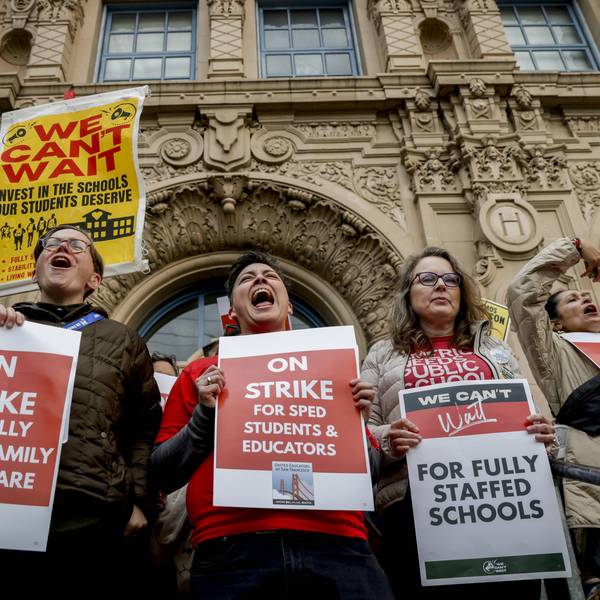Nine days ago, West Virginia teachers collectively walked off the job demanding better wages and a fix to soaring health insurance premiums, and on Tuesday Republican Gov. Jim Justice announced that lawmakers finally reached an agreement to give educators--and all other state public employees--a five percent pay raise.
Shortly after the deal was announced, the state House voted unanimously to approve the pay raise bill. The Senate subsequently approved the bill, sending it to Justice's desk.
In addition to the raise, the legislation will also establish a "tax force" in an effort to address rising costs in the state's Public Employees Insurance Agency (PEIA), which many teachers viewed as a critical--if not the central--issue of the strike.
Teachers welcomed news of an agreement with applause. From inside the state capitol building--where they have been rallying since last Friday--teachers sang, "Words mean nothing, put it in writing!" prior to the bill's passage.
While the details of the deal reached by lawmakers remain murky, some expressed concern that money for the five percent raise could come from cuts to social programs that help the poor, including Medicaid. According to the Kaiser Family Foundation, nearly 30 percent of West Virginians are covered by Medicaid.
"The point of the West Virginia's Medicaid ultimatum is that rich people's money is untouchable and if everyone else wants a decent quality of life they have to fight over it, may the best man win."
--Meagan Day, Jacobin
As the Charleston Gazette-Mail reported following Justice's announcement on Monday, "Senate Finance Chairman Craig Blair (R-Berkeley) said the deal comes with a caveat--the Senate only agreed to fund the raises via 'very deep' cuts to the budget, including a $20 million slash to general services and Medicaid. These cuts go beyond already planned fiscal reductions to the Department of Commerce and Division of Tourism."
Meagan Day of Jacobin noted that while West Virginia lawmakers are portraying possible cuts to Medicaid as a mathematical necessity, in reality the raises and an insurance fix could easily be paid for by hiking taxes on the rich or massive oil and gas companies.
"There is more than enough money in the state to pay for raises and benefits teachers need and deserve without making other people's (often teacher's families and friends) lives even harder," Day noted in a series of tweets on Tuesday.




